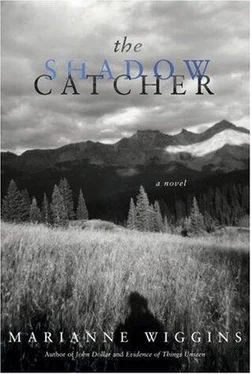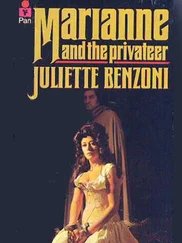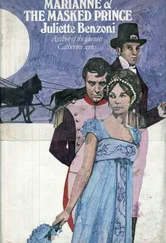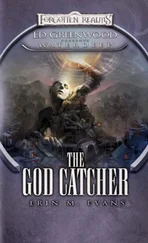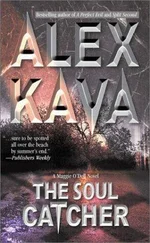Still, they did not believe it. Their mother had apparently been missing for some time before the rowboat was discovered on the shore of Puget Sound seven miles from Seattle and how were they to know the letter from Denver had arrived, from Hercules’s lawyer, explaining he had died, trying to save a horse from drowning in a rapids. How were they to know the comfort that their mother found in the muted sound out on the water when the mist was thick and still.
How it made the world into a concert hall where every drop of water could be heard.
How the mist reminded her of snow, and of her parents.
How the way she thought about the passage of her life had been reduced to those few moments she could count as purely joyous.
When she had realized that she loved him.
When she had filled a copper tub — that little boat — and taken off her clothes.
When Edward had appeared.
When the thought had run through her like Revelation: stand . Stand up . Stand up so he will see you.
She had tied the clothes that she was wearing in a bundle.
And through the mist the man she loved had called to her.
That name he had for her.
So long ago.
And once again — so proud, so free, so joyous — revelation shot through her.
And she stood up.

Iwake up in my car in Vegas, in the parking lot of Sunrise Hospital, to realize I’ve been dreaming of the dead.
My unzipped sleeping bag is rutched around my knees, my neck is stiff and it takes a couple moments for me to realize the persistent beeping in my ear is the alarm clock that I set at three o’clock this morning to go off so I wouldn’t miss my rendezvous with Lester Owns His Shadow at seven. I adopt what the yoga people ominously call the “corpse” pose and close my eyes to focus where I am and I realize I’ve been dreaming about people who are dead — except by dreaming them, I’d made them come alive.
Which is normal for a novelist because we dream non-living characters and animate them with our words but I’d never dreamed Red Cloud before which is probably my mind’s way of processing yesterday’s encounter with an Indian.
In the dream Red Cloud and I were standing at a precipice that sometimes looked like the North Rim of the Grand Canyon and other times looked like the edge of Acoma Mesa facing out across the plain. I knew who Red Cloud was in the dream because he looked exactly like the famous Curtis photograph of him, which means his head was down and his eyes were closed when he addressed me and I remember saying that he looked a lot like Dante in that pose, the way Signorelli painted him, which happens to be the portrait on the cover of the Penguin Classics version of The Portable Dante I found in the back of my car when I was making up this so-called bed at three a.m., left there after a Great Books discussion at a professor friend’s house a couple weeks ago in Santa Monica.
How the average person dreams is pretty much how the average novelist puts a page together. Random bits of seen material float in, dismembered parts of memories, skeins of information knit and shred in contrast to their logic.
In our dreams, as in our tales, we use the dead to tell us things we’d otherwise have to admit that we are saying to ourselves.
We dream the dead in ways that serve our needs, exploiting them for our unrecognized agendas, for our investment in the continuum of history, searching for a thread by which the meaning of our lives might hang. We dream the dead to stop the hollow longing in ourselves, and there were never two more potent dreamers of the dead than Dante in his hell and Red Cloud in his Ghost Dance on the Trail of Tears. So stick that in your subconscious high hat, Zigmund, that explains it: I’m an average dreamer. I meet an Indian, I end up dreaming one the first shut-eye I get. I see a book at bedtime and hey, presto. But that hardly explains the many times I’ve dreamed my mother and my father, the conversations that I’ve held with them in dreams for decades since their deaths. In dreams begin responsibilities. I remember standing in the Colorado Historical Museum in Denver a couple years ago, staring at a painted hide that once had been the sacred document of a Plains tribe’s winter count. The “winter count” was a tribal history, a sort of census taking, but rather than tally the living and their demographics, as our current census does, the winter count tallied how many in the tribe had died during the year and what had caused their deaths. The dead were painted as small hollow figures, their outlines waiting to be filled with detail and with tint. The empty ones had died of natural causes, but the ones filled in with red and yellow dots had died of smallpox and year after year there were more and more of them until the hide looked like a field of ocelots, overpopulated with bizarre and freckled corpses. Those were the dead that Red Cloud told his people could dance to life again through active dreaming — dance until their minds achieved a spirit level of entrancement, a wormhole through consciousness into the other world, like Dante’s purgatorio , where the dead remained, suspended in a state awaiting their rebirth. Red Cloud promised his people that the Ghost Dance would bring back the dead — not as ghosts or zombies but alive , their former selves intact, the way they had been before contact with the white man. Reunion was the subtext of his promise — and isn’t that what dreaming is, the union of our conscious with our sub-? Once or twice a year for several years after my father died I dreamed he’d visit me, knock on my door one sunny morning and tell me he’d been living in another city all these years under an assumed name and that he’d found new meaning in his life and that he was doing swell and fine and he was happy. These dreams left me feeling a burden had been lifted from my conscience — for however briefly these dreams lasted I had a sense of great relief that I didn’t have to try to figure out how to keep him active in my mind, how to place him in a setting excised from reality: he was in a city , he was fine and swell and I’m guessing I can’t be alone in dreaming death as some nearby Philadelphia, some Tampa or utopia where the departed go to take on new, improved or different lives. The necessity for Heaven — as a place —must be essential to our chemistry and, like water, maybe we can go without it for a while but ultimately every one of us succumbs to thirst. Every one of us must find a place to put our dead. The idea of miraculous return is an ancient one and I’m certain Uncle Freud would choke on his cigar if he found out how quick I was to pack the sleeping bag and jump into my car to find out if that “city” I had dreamed my father into, after death, was Vegas. We are lost , Red Cloud was saying to me when I dreamed him last night, lost in a pathless wood. Exiled from ourselves . This, of course, is Dante’s theme in his first Canto — that he’s lost in a strange place. Homesick. Exiled from his city, Florence, forcibly removed, as Red Cloud’s people had been from the land they loved. Both men summoned the dead to ease the pain of their homesickness — Dante built his fictive hell in circles that resemble Florence and Red Cloud told his people to transport themselves from hell on earth through dance into a psychic, fictive history. Homesickness, in other words, is the distance that we put between who we are and who we used to be, between our present and our past. And we are lost only when we have lost our dead, when we exile them from our lives, because the city where they live is us. I am my father’s Philadelphia. The place he went to start his second life. But somewhere there may be someone still searching for the old man upstairs, plugged into a machine to keep his real — and false — identity alive. And maybe that’s the shape of the despair that Lester saw in this man’s eyes — his final homesickness, as a man who’s stolen someone else’s shadow and has no one in whom to live when he is gone.
Читать дальше
